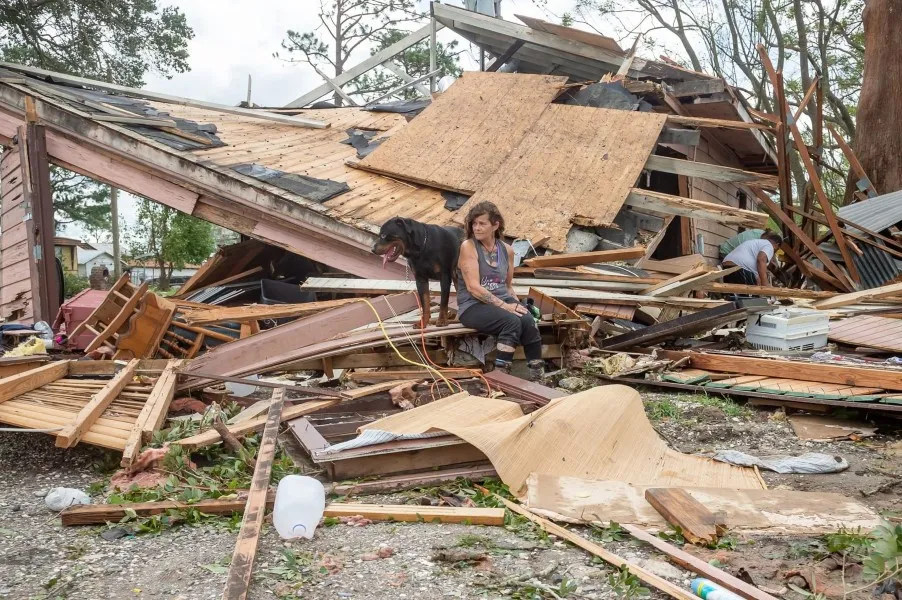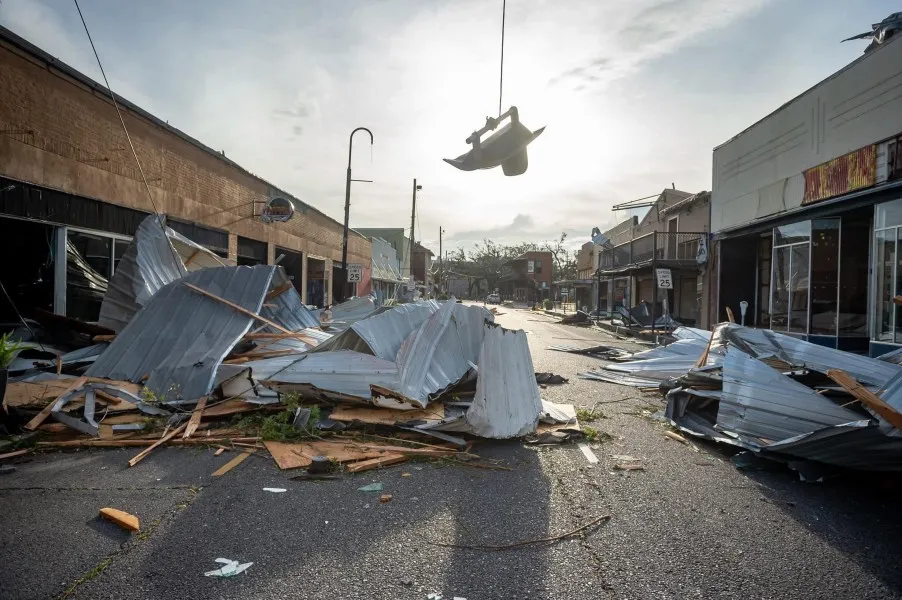
Vatican City, Sep 5, 2021 / 07:00 am (CNA).
Pope Francis prayed Sunday for the victims of Hurricane Ida, which has resulted in the deaths of more than 50 people in the United States.
“I assure you of my prayers for the people of the United States of America hit by a strong hurricane in recent days,” Pope Francis said after his Angelus address on Sept. 5.
“May the Lord welcome the souls of the dead and support those who suffer from this calamity,” the pope prayed from the window of the Apostolic Palace.
Hurricane Ida was one of the most powerful storms to ever make landfall on the U.S. mainland. The category 4 storm first hit Louisiana last week with sustained winds of up to 150 miles per hour.
The storm went on to hit the northeastern U.S. with record-breaking rainfall causing flooding in New York City and New Jersey, which was also hit by tornadoes amid the storm.
Recovery efforts are underway in both Louisiana and the Northeast. U.S. President Joe Biden is scheduled to visit New Jersey and New York on Sept. 7 amid the clean-up efforts.
Catholic Charities USA has said it will direct 100 percent of the funds raised through texts of “HurrIda” to 41444 to its agencies with residents impacted by Hurricane Ida.

Hurricane Ida resulted in the deaths of 12 people in Louisiana and at least 44 people in New York and New Jersey, Reuters reported on Sept. 4.
Among the victims of the hurricane were six elderly people evacuated from their nursing homes in Louisiana ahead of the storm.
The bishop of Houma-Thibodeaux in southeastern Louisiana told CNA on Sept. 3 that many parts of his diocese were still without running water and electricity nearly a week after the storm.
Of the diocese’s 39 churches nearly all, 36, were damaged in the storm. Some of the churches suffered severe damage.

“We’ve taken a significant blow and we just need some help right now,” Bishop Shelton Fabre told CNA.
“And we trust that that help will come and that God will provide. So, you go forward and hope.”
Although the physical damage from the storm was extensive, Fabre said that he was “grateful” that unlike in other storms, there was not a widespread loss of life due to Hurricane Ida. Hurricane Ida made landfall on the 16th anniversary of Hurricane Katrina, which killed over 1,500 people.
And despite the significant losses, Fabre explained to CNA that he has been thankful for the outpouring of support his diocese has received. Anyone who wishes to help, he said, can do so by contacting the Catholic Charities of Houma-Thibodeaux, as by praying for the diocese.
“We’re grateful for the good people who have come forward to help us,” he said.
“And hopefully there will be more people coming forward to help us because we will need the help. We’ll need their prayers and their financial assistance and assistance in helping us to rebuild this really, really beautiful part of the kingdom of God that is the Diocese of Houma-Thibodeaux.”
If you value the news and views Catholic World Report provides, please consider donating to support our efforts. Your contribution will help us continue to make CWR available to all readers worldwide for free, without a subscription. Thank you for your generosity!
Click here for more information on donating to CWR. Click here to sign up for our newsletter.




Leave a Reply